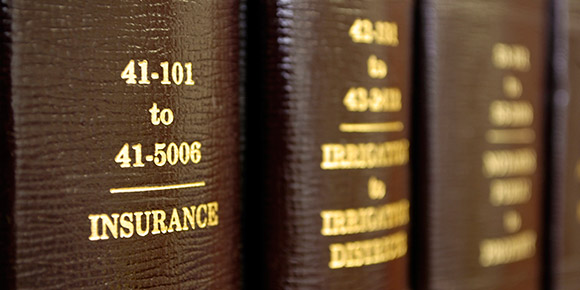NINA E. KALLEN
- 40 FLORIAN STREET
ROSLINDALE, MA 02131 - (617) 363-0547
- fax: (617) 344-6041
- nkallen@kallenlawyer.com
- www.kallenlawyer.com
- insurancecoveragemassachusetts.blogspot.com
PREPARING TO TESTIFY AT A DEPOSITION
What is a deposition?
A deposition is your testimony under oath (subject to the penalties of perjury). There is no judge present, and the deposition will be taken in one of the attorney's offices with your lawyer present. You will be asked questions by the opposing attorney. The official court reporter will take down all that is said.
What are the purposes of a deposition?
The opposing side is taking your deposition for several reasons. First, they want to find out what facts you have in your actual knowledge regarding the issues in the lawsuit. Second, they want to pin you down to a specific story so that you will have to tell the same story at the trial and they will know in advance what your story is going to be. Third, they want to evaluate you as a witness, both how you come across as a person and whether you seem truthful.
The transcript of the deposition may be used at trial in a number of ways. If you are not available to testify at trial for some compelling reason, the transcript may be offered in lieu of your testimony. The entire transcript may be put into evidence even if you do testify. If your testimony at trial is different from your testimony at your deposition, your trial testimony may be impeached by your deposition testimony. While no one expects identical testimony, if there are substantive differences the other side’s attorney will use that to try to convince the jury that you are untrustworthy.
How should I prepare for a deposition?
Review any documents your attorney tells you to review. Get a good night's sleep beforehand. Dress in what you would wear to a meeting that your boss's boss will be attending-you want to look presentable but not so overdressed that you are uncomfortable.
If you are testifying on behalf of a business or organization, you will need to do additional preparation that your attorney will discuss with you.
Rules for testifying at a deposition
Tell the truth. This is more than a copybook maxim; it is a rule of self-preservation for witnesses. Not telling the truth can seriously damage or destroy your case. It can lead to prosecution for perjury.
Listen carefully to the question and answer the question that is asked. Do not volunteer information that is not asked. If you are asked a yes or no question, answer "yes," "no," "I don't know," "I don't remember," or "I don't understand the question," whichever is the truthful answer. If you are asked where you live, give your current address. Do not go on to say that you just moved there or that you will be moving soon.
If you are finished with an answer and the answer is complete and truthful, remain quiet and do not expand upon it.
Do not try to assist the deposing attorney. You are there to tell the truth, but not otherwise assist the deposing attorney. Do not tell the deposing attorney what questions he or she should be asking.
Do not assume you know why a question is being asked.
Do not argue with the deposing attorney.
Disregard the deposing attorney's attitude. Do not pay heed to his or her tone of voice or attitude. These things are irrelevant.
If you do not understand a question, say so.
Correct mistakes. If you realize that you may have made a mistake in your testimony, ask to take a break and let your attorney know before the deposition ends. Your attorney will make sure you have an opportunity to clear up the mistake.
Do not worry about telling your story now. A deposition is an opportunity for opposing counsel to ask the questions he or she is interested in. It is not the forum in which you are able to present your side of the story.
Testify only about what you know. Do not guess or state something that you have heard as something that you know.
Do not expect to testify without the other side scoring points. If the other side asks questions that call for answers that you believe will harm your case, accept the fact that every lawsuit has two sides. Do not try to avoid unpleasant answers or, even worse, lie. Just keep your answers short and to the point.
If your attorney objects, do not answer the question until your attorney tells you that you may answer. Under the current Massachusetts court rules, attorneys may object to questions at depositions only in rare circumstances: if the question seeks privileged information (information that is confidential, such as a conversation you had with your attorney) or if the form of the question is confusing. Sometimes an attorney will also object if opposing counsel is harassing you by asking the same question over and over again, or asking embarrassing personal questions that are clearly irrelevant to the case. If your attorney objects, do not answer the question unless and until your attorney tells you to answer.
Feel free to ask to take a break. It is fine to ask to take a break at any time. Feel free to ask for a break if you are hungry or need to use the restroom. If you are tired, talk to your attorney about finishing the deposition on another day. It is better to come back than to give less than your best testimony. However, you should clear your schedule for the entire day so that you do not have to end the deposition unnecessarily.
Do not ask to look at any documents that you bring with you to the deposition unless you check with your attorney beforehand. Any documents that you look at can be made an exhibit in the deposition, and the opposing attorney will have an opportunity to examine them and take a copy of them.
Do not make any jokes or sarcastic statements. The most important part of the deposition is the written transcript that will be made of it. Jokes and sarcastic statements are easy to misinterpret when they are part of the transcript.
Avoid even the mildest obscenity and avoid absolutely any ethnic slurs or references that could be considered derogatory.
If there are areas that you consider irrelevant to the lawsuit about which for a strong personal reason you do not want to testify, let your attorney know beforehand. One of the purposes of the deposition is for the opposing attorney to get to know your personal background. Typically depositions begin with questions about your education, work experience, and family, even if these are irrelevant to the lawsuit. These questions are common and are not inappropriate. If, however, you have a personal reason to not want to testify about something (such as if you are in the middle of a bitter divorce, or you have a child who is very ill), let your attorney know before the deposition begins. Although opposing counsel has the right to ask questions about your personal life, most will refrain from doing so if presented with a compelling reason.





